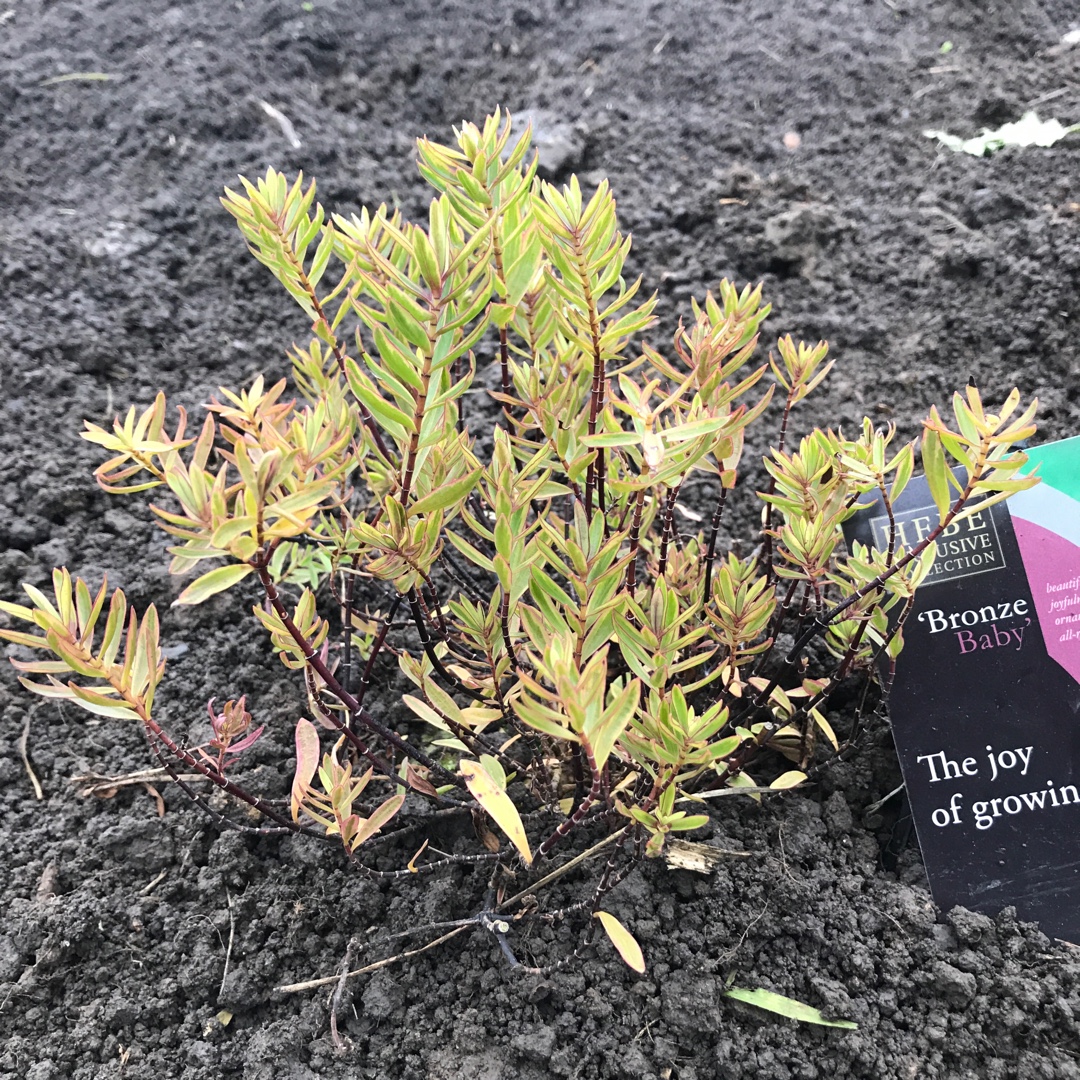
Hebe 'Bronze baby'
Shrubby Veronica 'Bronze baby'
Hebe 'Bronze baby' has leaves that are mid-green with a cream edge, turning bronze in winter. Hebes are popular garden shrubs and are found in most temperate climates. They are as evergreen with decorative (sometimes variegated) leaves. The flowers, in shades of blue, purple, pink or white, appear throughout summer and autumn. They are tough and able to withstand salt-laden winds makes them especially suited to coastal areas. However, they will not thrive in regions subject to prolonged freezing temperatures.
Contributed by @dammers1981
-
Full sun
-
Very little water
-
Frost Hardy: 23F (-5°C)
-
Light and free draining
Common name
Shrubby Veronica 'Bronze baby'
Latin name
Hebe 'Bronze baby'
type
Evergreen Shrub
family
Plantaginaceae
ph
5.0 - 7.5 Acid - Neutral
Plant & bloom calendar
-
Best time to plant
full grown dimensions
 1.00 M
1.00 M
1.00 M
1.00 M
Hebe 'Bronze baby'
Hebe 'Bronze baby' has leaves that are mid-green with a cream edge, turning bronze in winter. Hebes are popular garden shrubs and are found in most temperate climates. They are as evergreen with decorative (sometimes variegated) leaves. The flowers, in shades of blue, purple, pink or white, appear throughout summer and autumn. They are tough and able to withstand salt-laden winds makes them especially suited to coastal areas. However, they will not thrive in regions subject to prolonged freezing temperatures.
Planting young plants
From Mid Autumn TO Mid Spring
Plant Hebes in autumn or in spring. They thrive in most well drained garden soils including chalk, and in full sun. The tender species require wall protection in inland gardens.
Propagation by cuttings
From Mid Summer TO Late Summer
Take cuttings 2-4 inches of non-flowering growths during summer; insert the cuttings in equal parts of peat and sand and place in a cold frame. Varieties of H. speciosa are best rooted in a greenhouse which can be kept frost free. The following spring, pot on the rooted cuttings into 3 inch pots of John Innes No 1. Plunge the pots outdoors and transplant the hardy species and varieties into their growing positions in late summer. Tender varieties should be potted on and overwintered in a cold frame.








